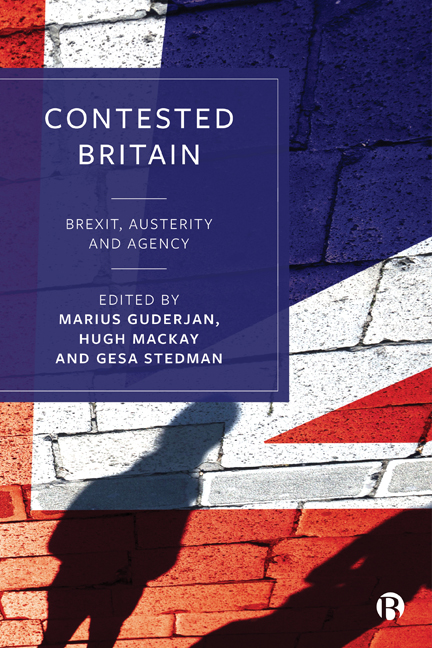10 - ‘Uni-Culti’ Myths and Liberal Dreams: Brexit and Austerity from the Perspective of Migrants
Published online by Cambridge University Press: 10 March 2021
Summary
Introduction
The Brexit vote and its results have become a key theme in European media, and countless experts and journalists have shared their opinions on the reasons behind Brexit and its possible effects. Scholars soon followed with analyses that led to one conclusion: Brexit resulted from a ‘toxic mix of immigration and austerity’ (Gietel-Basten, 2016). Yet the debates on Brexit focused almost exclusively on the motives of British Leave voters, largely neglecting the voices of migrants, that is, unless they pose the question: will migrants return ‘home’? As scholarship linked the Brexit vote to austerity politics, it failed to ask whether migrants’ choices and austerity are also connected.
In this chapter, the conjuncture of British austerity politics, the Brexit vote and migrants’ perceptions of both are scrutinized. The author draws her insights from a longitudinal study among Polish migrants in London and Birmingham. Out of the 3.8 million EU citizens living in the UK (6 per cent of the country's population), almost 30 per cent were born in Poland. Some 200,000 Poles reside in London, and 17,000 in Birmingham. While analysing migrants’ perceptions of austerity politics and the Brexit vote, this chapter also looks at their past experiences. This shows how the Brexit vote exacerbated a longer (and also austerity-fuelled) process of transnational neoliberal disciplining of workers and migrants. Further, it reveals how migrants’ perception of their own and others’ position in contemporary Britain engage the national welfare-state logic which legitimizes inequalities and discourses of deserving.
Austerity, Brexit and migrants
‘Austerity’ involves an increasing focus on frugality, self-sufficiency and fiscal prudence in contemporary economic and political life. The austerity agenda that the Conservative– Liberal Democrat coalition government introduced in 2010 built upon longstanding traditions within UK economic policy. Though the immediate justification for the 2010 measures was a presumed need to reduce the national debt, the longer-term goal was to shrink the state, free up the market and set British political economy on a new course. The current cutbacks are of an exceptional scale, speed, composition and social impact (Taylor-Gooby and Stoker, 2011). And the state's resulting withdrawal from providing minimum living standards negatively affects low-income families and their children, women, people with special health needs and migrants.
- Type
- Chapter
- Information
- Contested BritainBrexit, Austerity and Agency, pp. 145 - 158Publisher: Bristol University PressPrint publication year: 2020

